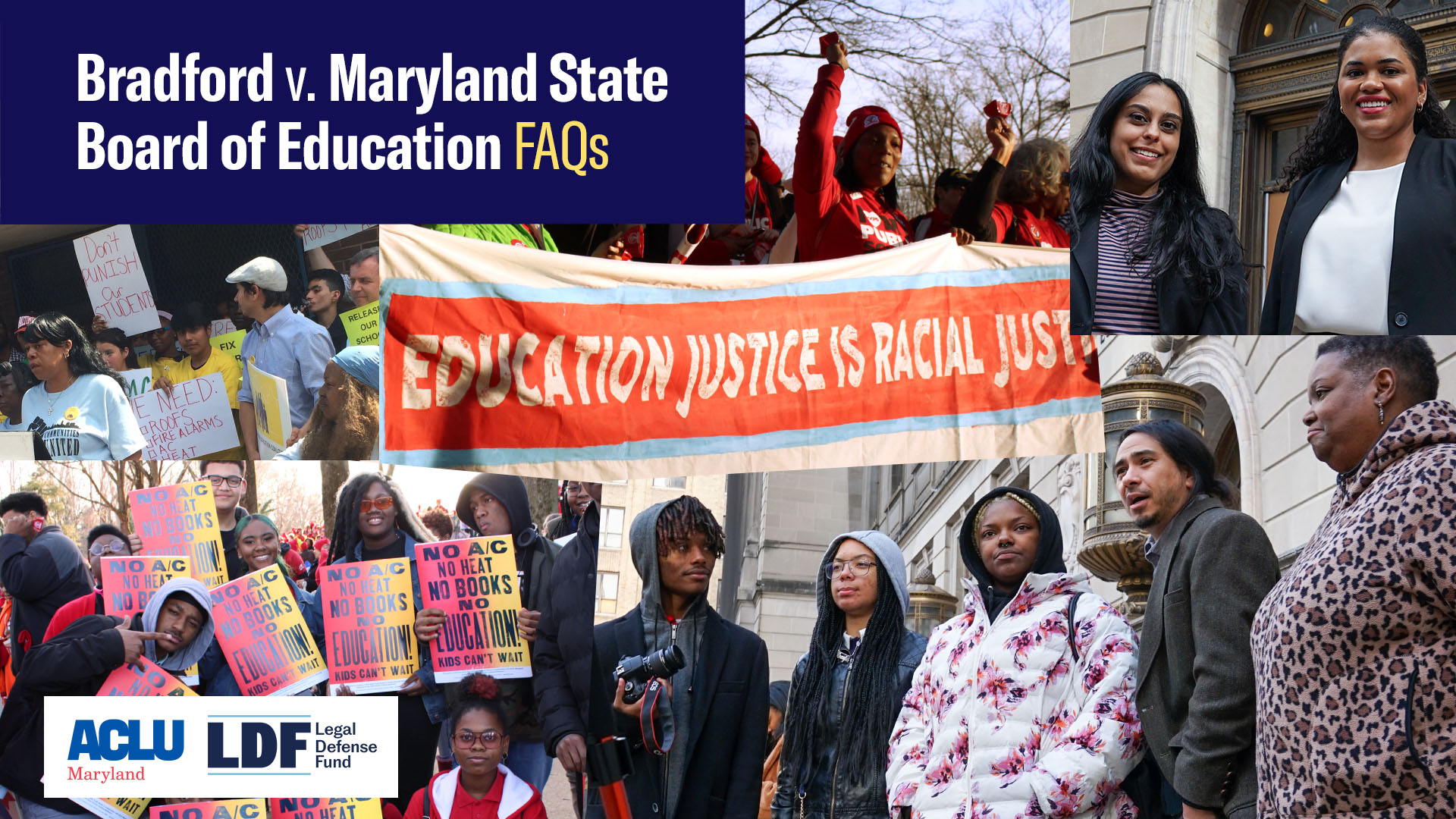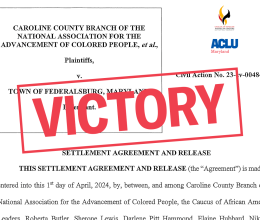
LEARN MORE ABOUT BRADFORD V. MSBE
Frances Bruey at the Legal Defense Fund produced and edited this video in collaboration with the ACLU of Maryland. Nehemiah Bester, Nicole McCann, and Frank Patinella contributed video and photo content.
TRANSCRIPT
00:00 – 00:10
Frank Patinella
We are suing the Maryland State Board of Education because the state has consistently underfunded public schools in Baltimore City for decades.
00:10 – 00:28
Arielle Humphries
Baltimore City public-school buildings are, by many measures, the worst in the state. They have some of the oldest buildings in the state and many of the facilities have issues like rodent droppings, water leaks and damage, and exposed wiring in the classrooms.
00:28 – 01:09
Arielle Humphries
On top of that, the district often suffers from HVAC failures. According to one study between 2014 and 2019, building system failures that resulted in emergency closures led to 1.5 million hours of lost instructional time. And on top of all of that, the students often report feeling devalued attending schools and such crumbling facilities. As of 2017, the Department of Legislative Services estimated that the district was underfunded by $342 million annually.
01:09 – 01:31
Frank Patinella
This is a violation of Maryland's constitution, which requires the state to provide sufficient funding to schools so that all children in Maryland receive an education that prepares them to be successful in life. In Bradford v. the Maryland State Board of Education, we make the case that the state has not complied with the Maryland Constitution, nor with the court's prior orders on this lawsuit.
01:31 – 01:56
Frank Patinella
The case first began in 1994, and decades later, Baltimore City's public-school children are still being denied the education they deserve. In 2019, a group of concerned parents and civil rights organizations brought a petition for further relief in the Bradford case to vindicate the constitutional right of students in Baltimore schools to receive an adequate education as measured by contemporary standards.
01:57 – 2:12
Frank Patinella
Decades long underfunding has denied generations of children in Baltimore who are primarily Black, along with a growing population of Latinx students, their right to an adequate education and has prevented them from realizing their dreams and full potential.
02:12 – 02:26
Arielle Humphries
While the Blueprint Act, Built to Learn Act and 21st Century School Building Program are a step in the right direction, they are not enough to address the unconstitutional underfunding of Baltimore City Public Schools.
02:26 – 02:55
Arielle Humphries
The Blueprint Act raises the educational standards across the state, but Baltimore City public schools are already struggling under the old standards. On top of that, the Blueprint funding doesn't do enough to address the specific population needs in Baltimore City, which is a school district that has a high proportion of students with disabilities and special needs, as well as a lot of students living in poverty.
02:55 – 03:13
Frank Patinella
The plaintiffs in the Bradford case are children who attend Baltimore City public schools and their parents. They bring this lawsuit on behalf of all Baltimore City schoolchildren whose constitutional right to a thorough and efficient education continues to be violated by the state's underfunding of the city public schools.
03:13 – 03:27
Arielle Humphries
The Bradford v. Maryland State Board of Education lawsuit asks the court to declare that the state is violating Maryland's constitutional guarantee that every child receives a thorough and efficient education.
03:27 – 03:45
Arielle Humphries
We are asking for resources for the children who attend Baltimore City public schools, who are at risk of educational failure because of the unconstitutional underfunding of their school district.









